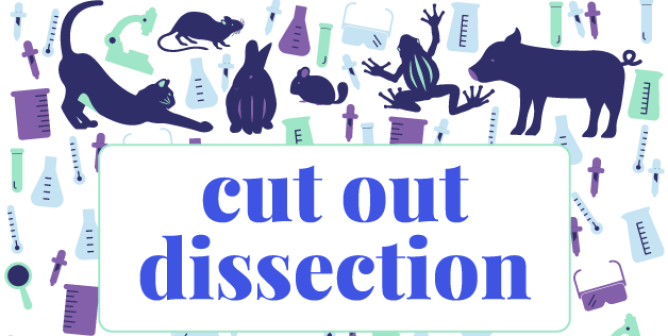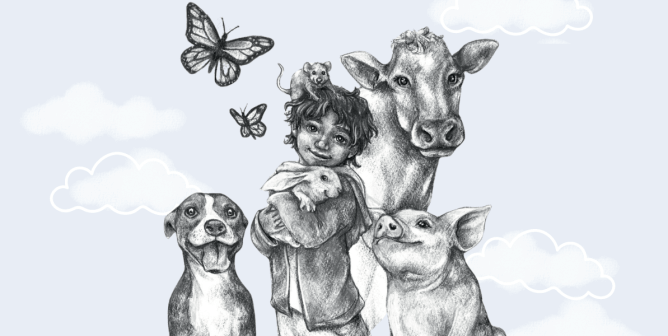How to Use PETA Resources for Every Grade Level
PETA Kids for Elementary Students
Walk into an elementary classroom and ask the students to tell you about their favorite animals, and you’ll get an enthusiastic discussion. One thing is for sure: Kids get motivated when you talk about animals—and it’s our job as teachers to harness their enthusiasm in order to help animals. These resources from PETA Kids will allow your students to learn about the plight of animals and discover ways that they can help them. Trust us—you’ll have some very engaged learners in your classroom.
Just the Facts
You’ll definitely get some passionate responses from your students when they use these fact sheets as prompts for opinion writing. Each sheet gives kids information about the true nature of animals and what happens to them when they’re used for food, clothing, experiments, and entertainment. It also helps them understand issues facing wildlife and companion animals.
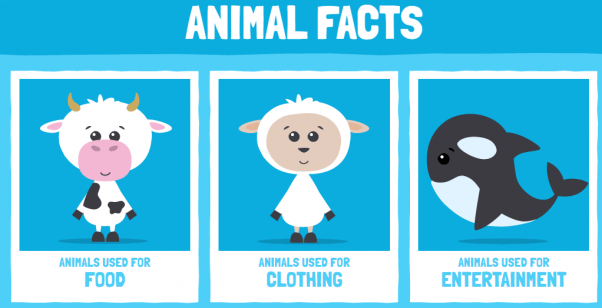
Hollywood
Meet curriculum standards by having your students compare and contrast classic books such as Charlotte’s Web or Bambi with their animal-friendly movie versions. (We know you’ve been dying to use those Venn diagrams.)

Little Kids
These free printable activity sheets are perfect to pair with your lessons for little kids. Plus, you can use them to meet many common core and state education standards. Students will be begging to dive into these informational texts during independent reading time.
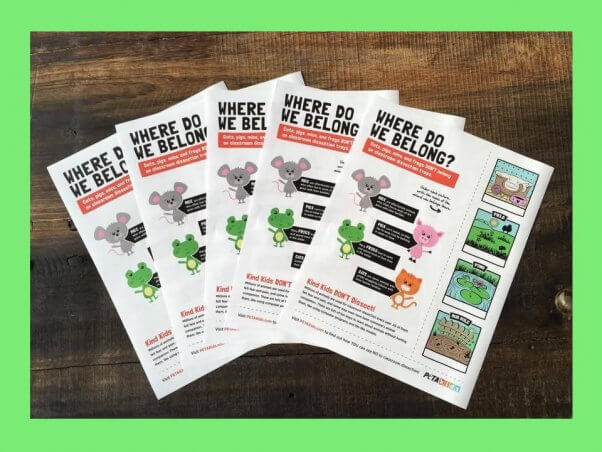
Secondary Students
Do you have upper-middle or high school students who are passionate about helping animals? Have questions about the use of animals for food, entertainment, or other cruel industries come up during class discussions? Send your students to peta.org/students. This page is targeted specifically to young people aged 13 years and older. It covers important animal issues that your students can explore in debates or persuasive essays or even use as inspiration to make positive changes in your school.
Breaking News
Encourage critical thinking by using information from peta.org/students as part of classroom discussions about current events. Animals are being exploited and abused every day. What’s more current than that?
They can become active in your school and community by spreading awareness with fun projects like decorating their textbooks. It might even spark a classroom discussion and a teachable moment.
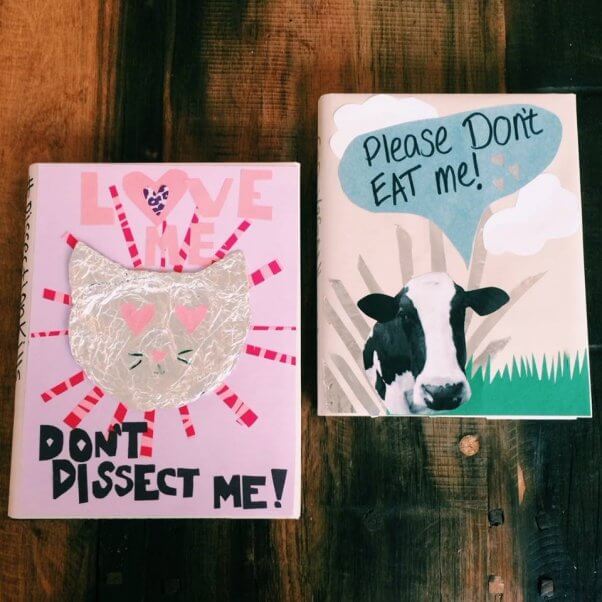
Inspire your class to make the world a better place for all beings! Sign up for TeachKind’s mailing list to get more ideas about ways to incorporate kindness to animals into your classroom.
Become a TeachKind teacher and sign up to receive more tips and resources on humane education!
By submitting this form, you’re acknowledging that you have read and agree to our privacy policy and agree to receive e-mails from us.

